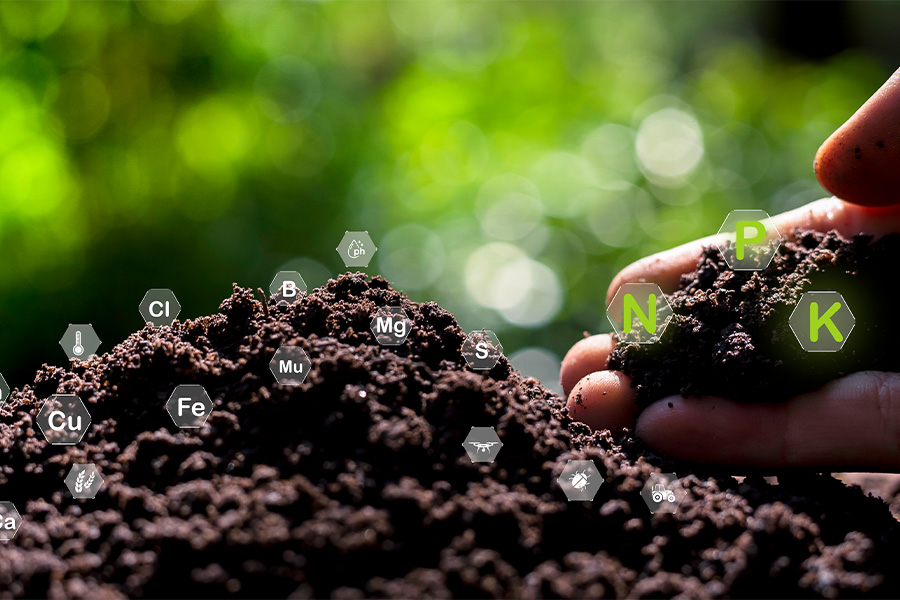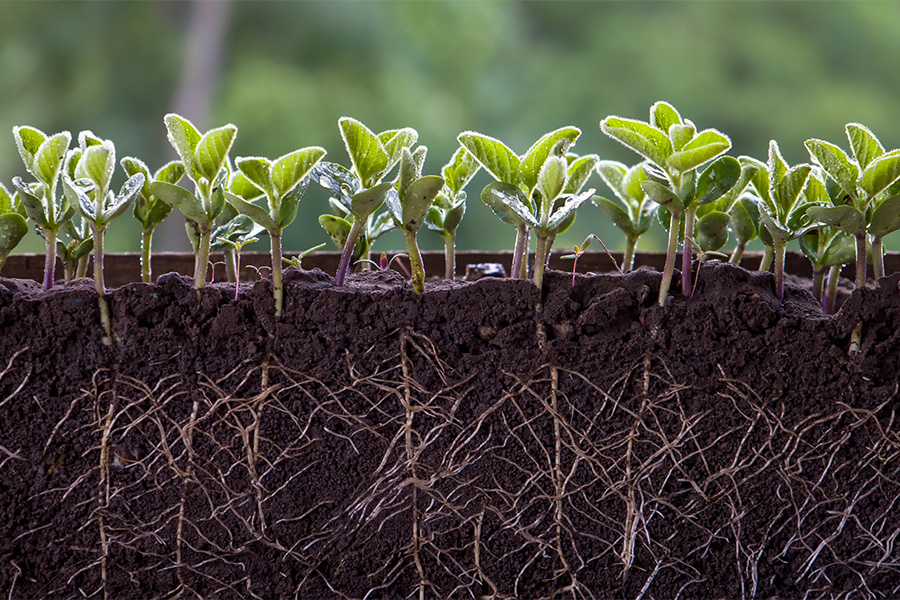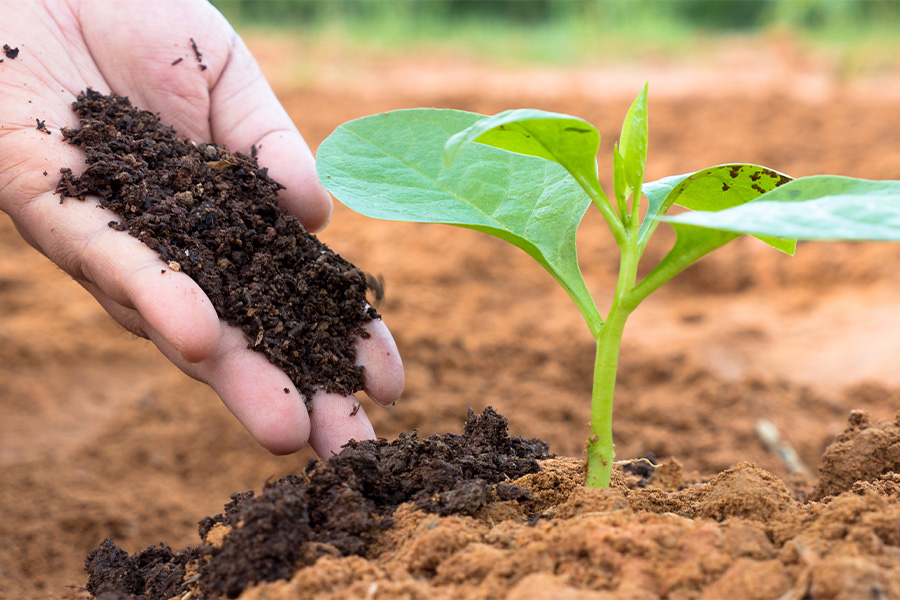Soil
-

Cation exchange capacity (CEC) is a measure of the total negative charges within the soil that adsorb plant nutrient cations such as calcium (Ca2+), magnesium (Mg2+) and potassium (K+). As such, the CEC is a property of a soil that describes its capacity to supply nutrient cations to the soil solution for plant uptake.
Uttam Saha
|
-

Successful lawn care requires a basic understanding of soil properties. A healthy plant starts with healthy soil. Soil is a complex relationship of soil minerals, organic matter, soil inhabiting organisms, and plants along with water and air. Understanding when and how to aerate the soil and understanding what pH is and how it affects plant health is essential for turfgrass health. This publication aims to help homeowners and landscape professionals improve soil fertility through the techniques discussed.
Freddie Waltz and Rebecca Griffin
|
-

C 990
Soil Inoculants
Soil inoculants are used for a variety of reasons. In some cases, we add soil organisms that have a known beneficial effect. A symbiotic relationship is one that is mutually beneficial. In return for the plant feeding the rhizobia carbon from photosynthesis and giving it a home, the bacteria can “fix” atmospheric nitrogen into a form that the plant can use.
Julia Gaskin, Peter Hartel, Elizabeth Little, and Glendon Harris
|
-

Many farmers and gardeners use natural minerals and organic fertilizers rather than synthetic ones to build their soil. If you use organic materials as all or part of your fertilization program, this publication will help you calculate the proper amount to use from the recommendations provided by a soil test.
Walter Reeves, Julia Gaskin, David Kissel, George Boyhan, Wayne McLaurin, and Glendon Harris
|
-

Soil pH is one of the most important measurements of soil fertility. Knowing a soil’s pH may help in diagnosing nutritional problems of agricultural crops and other plants.
David Kissel and Paul Vendrell
|